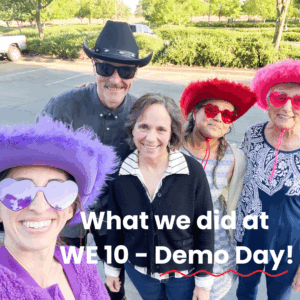In my coaching practice, one of the most frequent things I hear is “I didn’t do that thing I said I would do.” I hear this in response to my inquiries about action steps my clients have promised, and in stories about situations at work. If you were to keep a log of every promise you made through the week, how many of them do you think you keep? 90%? 80%?
Keep thinking – what about when you told your spouse you’d be home at 6pm, but you were home at 6:10 because you wanted to get that one more thing done at work? What about when your child said, “can we play checkers later?” and you said “yes,” but you were tired and he didn’t push?
What is the value of keeping your promises?
And if you see the value, then how do you know when you have made a promise?
What about the deadlines you have made, and/or agreed to, at work this week? Are they hard deadlines? Soft deadlines? Do you treat the two differently? Do you act like deadlines made between you and a colleague are less important than between you and your boss? Do you prioritize your promises?
When you look around at your business, how many promises are being kept? How often? And how does it affect the business when promises are routinely not kept? What is the effect on you when someone prioritizes a promise to you lower than a promise to someone else? 
It can be useful to realize that if you agree to do something, that is effectively a “promise.” It is interesting how much more power the word “promise” has for people than the word “agreement” or “commitment.” But they are the same thing, aren’t they?
Whether you keep your promises or not greatly affects people’s ability to trust you. And whether people can fully trust you affects the quality of the relationship. At work, if trust is eroding, work does not get done as well, or as effectively.
In the end, if the other person thinks you made a promise, then you may as well have, because if you don’t keep it, their ability to trust you is affected.
And so…
• Be clear in your promises – if someone says “will you?” don’t say “I guess” or “I’ll try”. Say “yes” or “no” or “I don’t know.”
• Give timelines about when people can expect things from you – this is huge – provide clear expectations for people. Often people think you have broken an agreement when you have just not gotten around to it yet.
• Consider when saying yes to something, is this a promise? Does the other person believe this is a promise?
• Consider when making a promise, “can I keep this?”
And if you really want to learn the art of effective promise-making, come to our communication workshop on November 4, where we will learn the art of clear communication, how to listen well, how to understand better, and all the things that get in the way of hearing people and clear communication. You don’t want to miss this – it will change all of your relationships and strong relationships = strong results = getting what you want at work and elsewhere. Go here for more info and to register: http://www.mclarencoaching.com/coaching-for-businesses-and-corporations/workshops-and-trainings/






